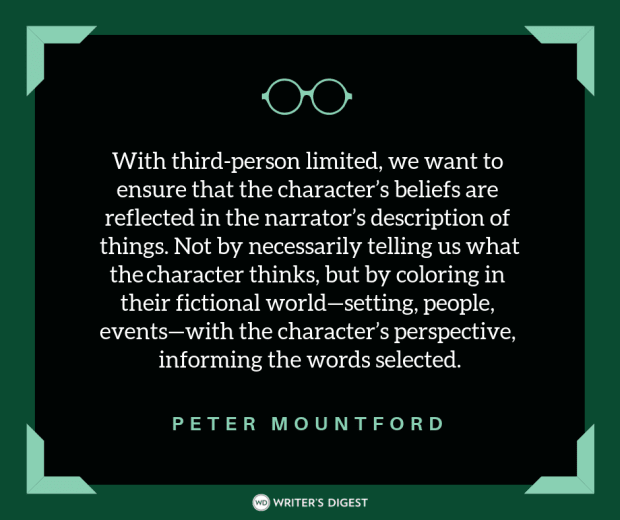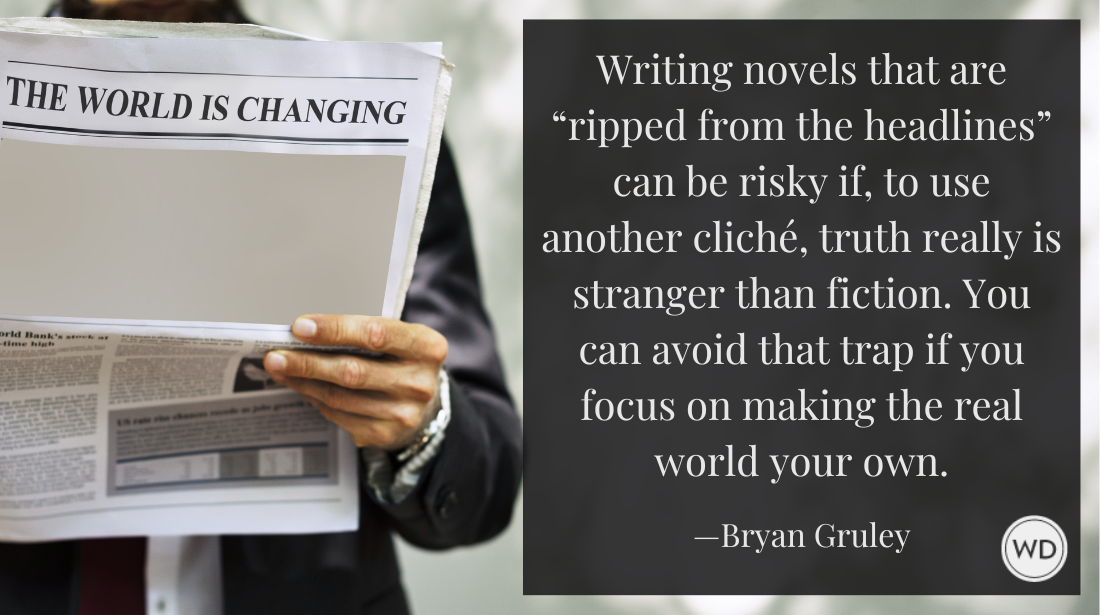How to Prevent Reader Boredom in Your Novel (Plot-Protagonist Secret #1)
Today’s guest post is a three parter (ending Friday), and comes from the inimitable Jim Adam, who I met at a recent Writer’s Digest Editors’ Intensive. Visit his homepage, or…
Today's guest post is a three parter (ending Friday), and comes from the inimitable Jim Adam, who I met at a recent Writer's Digest Editors' Intensive. Visit his homepage, or follow him on Twitter. Warning: For any Harry Potter readers and/or movie fans who do not know the outcomes of Books 6 and 7, spoilers lie near the end.
Most people define plot as "the events that make up a story," and that's a fine definition. Except that for writers, it's a shortcut to the hot place. I've been burned by it, and as I read unpublished works by other struggling writers, I see them getting burned by it too.
Here's a better definition:
Plot is the set of actions that protagonists take to achieve their goal.
Wait, don't leave yet! I know you've seen this definition before and are bored by it. Maybe you have every right to be bored, but for many writers, the simplicity of this definition is misleading. We look at it and think, "Yeah, yeah, I learned that twelve years ago." But however simple the rule seems, many of us still haven't mastered it. We continue to churn out stories that are collections of disconnected events, stories that lack drive and intensity, and stories that wander off course.
What ties a series of scenes together, so that they feel truly connected?
- A common cast of characters?
- A common central conundrum?
- A common setting?
- Cause-and-effect relationships?
Even taken together, all of these elements aren't enough. Only by giving goals to key characters, and letting those characters drive the story, can we make a sequence of events hang together as an integral plotline.
Maybe it sounds easy, but I continue to struggle with this concept in my own writing, and based on what I'm seeing in various workshops, I'm not alone.
The One Sentence Plot Description
My editor tells me that I should be able to describe any novel in a single sentence of the form:
Protagonist must do X or else Y will happen.
Does that sound reductive? Too linear? Maybe it is. But for those of us struggling to get our act together, simpler is better. Sadly, for many of us, our one-sentence plot statement would be something like, "Gretta must do what she's told when she's told until I reach the desired word count."
Characters without strong goals become widgets, pushed about by our word processors. They meekly subvert their personality to the predefined plot outline. As a result, they come across as passive, unreliable, dull.
The Right Protagonist for the Job
Consider The Wizard of Oz. When Dorothy steps into the Land of Oz, her eyeballs bulge. Goodness, they certainly don't have flowers like these in Kansas! As she wanders about, a soap bubble lands and out steps Glinda, the Good Witch of the North. Glinda tells Dorothy, "To get back home, follow the Yellow Brick Road. That'll take you to the Wizard, and he'll be able to help you."
Dorothy straightens her back and stomps her foot. "I most certainly will not! Go visit a Wizard? Ha. What do you take me for?" And so Dorothy tramps off into the wilderness, carefully avoiding the Yellow Brick Road whenever it comes into sight. A thousand pages later, she's still at it, no closer to getting home than when she started.
The problem here isn't that our shadow Dorothy lacks a goal, but that the author has selected the wrong Dorothy for the story. This alternate Dorothy's hard-headedness makes her look like a dolt, someone that readers will have a hard time identifying with, sympathizing with, or caring about.
The more cynical reader, of course, sees this alternate Dorothy for what she really is: a convenience for the author, who wants to write an epic story but can't be bothered to come up with a true plot, and so makes do with an episodic travelogue.
If a protagonist (or villain) has the path to victory laid out for them, and then turns away from it for some arbitrary reason, the story loses intensity. Some readers may even lose their faith in the story's trustworthiness.
At the risk of being pelted with bludgers, I'm going to use Harry Potter to illustrate this point. In the Potter series, at the end of Book 6, Half-Blood Prince, the evil Voldemort has won. Voldemort's nemesis (Dumbledore) is dead, and Voldemort's Death Eaters are inside Hogwarts itself—locked in battle with Dumbledore's loyal followers.
Voldemort's path to victory is clear. He need only join the fight and he can carry the day. Instead, his Death Eaters flee Hogwarts, and for the next three months, Voldemort quietly sits on his hands so that Harry can have his traditional summer vacation at home.
In this case, the villain is forced to turn his brain off precisely because the protagonist of the story isn't the right protagonist. Harry is neither ready, willing, nor able to take up Dumbledore's mantle. If Voldemort played his cards, Book 6 would end with Harry Potter dead, and Book 7 of the series would vanish.
The arrangement here reminds me of a Warner Brothers cartoon: A wolf and a sheepdog walk up to a time-clock and punch in. "Morning, George," the sheepdog says. "Morning, Ralph," the wolf says. They move to their respective positions, the 8 a.m. whistle blows, and they begin feuding over the sheep. When the 5 p.m. whistle blows, they clock back out and walk home together amiably.
When a story manipulates key characters, forcing them out of character in order to achieve something the writer considers important, the result can become farcical. The best way we can avoid this fate is to:
- Make sure our key characters have solid goals that they pursue vigorously.
- Make sure our protagonist is well-matched (both in ability and in temperament) to the obstacles he's expected to overcome.
If the obstacles aren't great enough, reader boredom will likely set in. If the obstacles are too great, we'll be forced to cheat in order to reach a happy ending. Of course, both the first Oz book and the last Potter book cheat. The Wizard of Oz suddenly decides that witches melt if touched by even a drop of water; The Deathly Hallows introduces three godlike magical artifacts to get Harry across the finish line. What this shows, I think, is that if we have a strong story, nothing's going to stop us. However, for those of us with boxes full of rejection slips or an interest in producing the very best story possible, we need to carefully match our protagonists to the obstacles they face, and vice versa.
Jane Friedman is a full-time entrepreneur (since 2014) and has 20 years of experience in the publishing industry. She is the co-founder of The Hot Sheet, the essential publishing industry newsletter for authors, and is the former publisher of Writer’s Digest. In addition to being a columnist with Publishers Weekly and a professor with The Great Courses, Jane maintains an award-winning blog for writers at JaneFriedman.com. Jane’s newest book is The Business of Being a Writer (University of Chicago Press, 2018).








